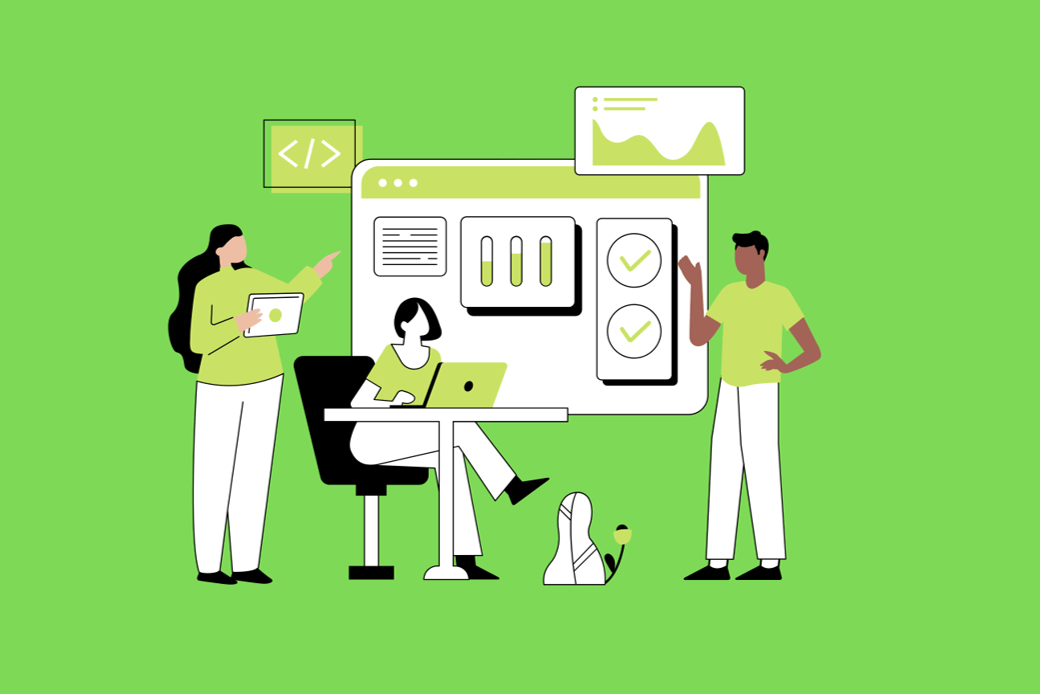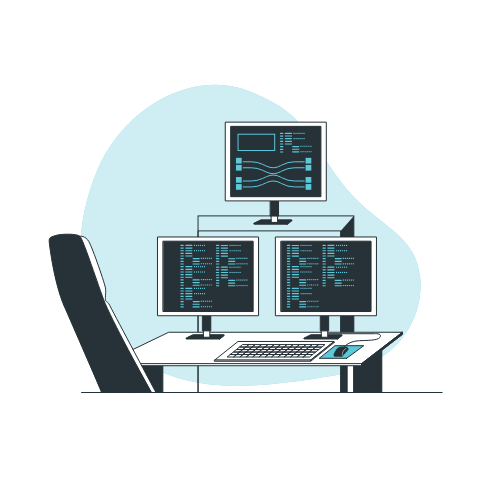In today’s fast-paced digital world, the partnership between a business and its development agency is more than just a contractual arrangement; it’s a critical alliance that can determine the success of your digital projects. Whether it’s launching a new app, developing a complex software system, or undertaking a website redesign, the agency you choose to work with becomes an extension of your team. Hence, building a strong and successful partnership with your development agency is pivotal.
The cornerstone of a thriving partnership lies in clear communication, mutual understanding, and aligned goals. Clear communication ensures that both parties are on the same page, reducing misunderstandings and aligning expectations. Understanding each other’s capabilities, limitations, and working styles is crucial for a smooth collaboration. Aligning goals means that both the business and the agency are working towards a common objective, making the journey from concept to completion a cohesive and efficient process.
Understanding Your Needs and Goals
Understanding your needs and goals is a fundamental step in creating a fruitful relationship with your development agency. This phase is not just about having a clear vision of the end product but also comprehending the nuances of your business needs and how they translate into the digital space. Precisely defined project goals act as a roadmap, guiding both your team and the development agency through the process of creation and implementation.
Importance of Understanding
The importance of this understanding cannot be overstated. It ensures that the development agency can align its strategies and technologies with your business objectives, leading to a more targeted and effective solution. A common pitfall in many projects is the ambiguity of goals, which can lead to misaligned expectations, wasted resources, and ultimately, a product that does not serve its intended purpose.
Conveying Your Vision
Conveying your vision and objectives effectively requires a mix of clear communication and active listening. Start by outlining your business objectives, target audience, desired functionalities, and any specific design or technical requirements. Use visual aids like flowcharts or wireframes if necessary to make your ideas more tangible. It’s equally important to be open to feedback and suggestions from the agency, as they bring technical expertise and industry insights that can enhance your project.
Case Study: “EcoTrack” App
A notable example of the impact of clear goal-setting is the development of the “EcoTrack” app. The client, an environmental nonprofit, wanted an app to track and reduce carbon footprints. Their clarity in expressing the need for user-friendly features, educational content, and robust data tracking was pivotal. The development agency, understanding these specific goals, was able to tailor the app’s design and functionality to include interactive carbon tracking tools, engaging educational resources, and a simple, intuitive user interface.
The result was a highly successful app that resonated with the target audience and significantly increased the nonprofit’s engagement and impact. The “EcoTrack” app’s success was a direct result of the clear articulation of goals and the effective collaboration between the client and the development agency, showcasing the power of understanding and communicating needs and objectives in the development process.
Choosing the Right Development Agency

Choosing the right development agency is a critical decision that can significantly influence the success of your project. The ideal agency should align not only with your technical requirements but also with your company’s culture and communication style. This alignment ensures that the development process is smooth, collaborative, and ultimately fruitful.
Criteria for Selecting an Agency
Expertise: Evaluate the agency’s technical and creative expertise. Ensure they have the skills and knowledge required for your specific project, whether it’s mobile app development, web design, or custom software solutions.
Portfolio: Reviewing an agency’s portfolio gives insights into their design aesthetics, complexity of work, and experience in your industry. Look for projects similar to yours in scope and functionality.
Cultural Fit: The agency’s culture should complement your own. This includes their approach to work, problem-solving, and innovation. A good cultural fit facilitates a more enjoyable and productive working relationship.
Communication Style: Effective communication is vital. Assess how the agency communicates during your initial interactions. Are they prompt, clear, and open in their communication? Misunderstandings can lead to project delays and dissatisfaction.
Researching and Reviewing Past Work and Client Testimonials
Conducting thorough research and reviewing past work is crucial. This not only shows their technical competence but also provides insights into their reliability and consistency. Client testimonials and case studies can reveal much about their working style, adherence to deadlines, and the quality of customer service.
Key Questions to Ask a Potential Development Agency
When assessing a potential development agency, consider asking the following questions:
- Can you provide examples of similar projects you’ve worked on?
- How do you approach project management and communication?
- What technologies and frameworks do you specialize in?
- Can you walk us through your development process?
- How do you handle changes or challenges during a project?
- Can you provide references from past clients?
- What post-launch support do you offer?
These questions will help you gauge the agency’s capabilities and their fit for your project. The right agency should not only have the technical skills but also understand your vision and be able to translate it into a successful digital solution. Their past work, client feedback, and approach to your queries will provide valuable insights, helping you make an informed decision.
Establishing Effective Communication
Establishing effective communication with your development agency is pivotal to ensuring the success of your project. Clear, consistent communication helps in aligning expectations, avoiding misunderstandings, and facilitating a smooth workflow. It forms the backbone of a strong collaborative relationship, crucial for navigating the complexities of a development project.
Strategies for Maintaining Clear and Consistent Communication
Regular Updates and Meetings: Schedule regular check-ins and meetings to discuss project progress, challenges, and next steps. These meetings should be structured yet flexible enough to address immediate concerns.
Defined Communication Channels: Establish clear channels of communication, whether it be through emails, messaging apps, or project management tools. Consistency in where and how you communicate can prevent information from getting lost or overlooked.
Transparent Feedback Loop: Create an environment where both parties can freely provide and receive feedback. Constructive feedback is essential for continuous improvement and addressing issues promptly.
Documentation: Keep thorough documentation of all communications, decisions, and changes. This practice ensures everyone is on the same page and can refer back to previous discussions if needed.
Tools and Practices for Streamlined Collaboration
Utilizing the right tools can significantly enhance collaboration efficiency. Project management tools like Asana, Trello, or Jira can help track progress, assign tasks, and manage deadlines. Communication platforms like Slack or Microsoft Teams can facilitate quicker, more informal interactions. Using cloud-based document-sharing platforms like Google Drive or Dropbox ensures easy access to project documents for all team members.
Case Study: Effective Communication Prevents Delays
A compelling example of effective communication in action is the development of the “EduTech” mobile application. Midway through the project, the client decided to pivot the app’s direction based on market research. This significant change had the potential to cause major delays and misalignment.
However, thanks to established communication protocols, the agency was promptly informed about the change. A special meeting was called to discuss the new direction, and the project plan was swiftly revised.
Building a Successful Development Agency

A successful partnership with a development agency requires trust, respect, and collaboration. It’s crucial to carefully plan and follow key steps to ensure successful project outcomes. Having a reliable agency by your side is an asset that prepares you for future technological challenges and opportunities. The partnership is instrumental in the continued growth and success of your business in the digital age.




